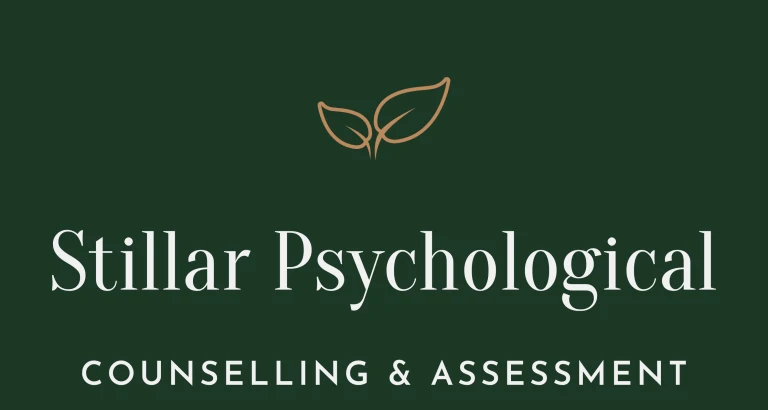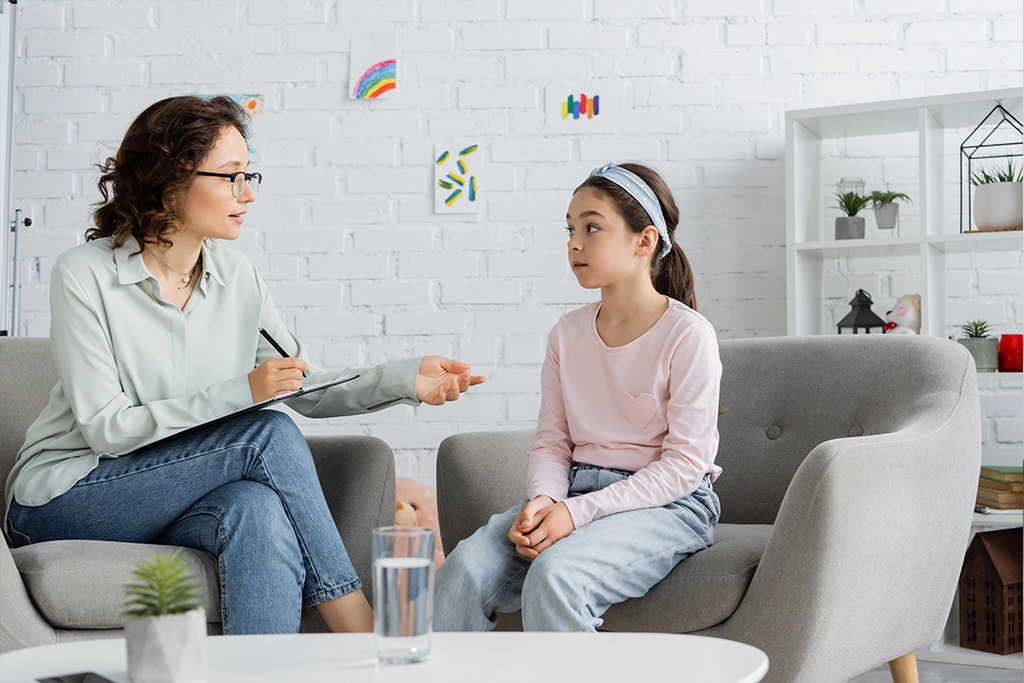Depression can profoundly impact your romantic relationships, creating emotional distance and straining the bond between partners. Individuals struggling with depression often face challenges that alter their communication and interaction patterns, making it difficult to maintain the closeness that a healthy relationship demands. Recognizing the connection between depression and relationships is crucial for both partners to navigate the complexities that depression introduces into their shared lives.
In this article, we will explore how depression can affect romantic relationships, revealing its impact on emotional closeness, communication, and the overall bond between partners. Join us as we navigate the complexities and offer insights into fostering resilience within relationships amidst the challenges posed by depression.
Understanding Depression
Depression is a multifaceted mental health disorder characterized by persistent feelings of sadness, hopelessness, and a lack of interest or pleasure in previously enjoyed activities. It encompasses a broad range of symptoms affecting emotions, thoughts, and behaviors, often leading to significant impairments in daily functioning and interpersonal relationships.
Symptoms may include changes in appetite or weight, disturbances in sleep patterns, fatigue, diminished ability to concentrate, and recurrent thoughts of death or suicide. Depression can arise from various factors, including biological, genetic, environmental, and psychological influences, and may manifest as a single episode or recur throughout a person’s life, impacting their overall well-being and quality of life.
Recognizing the Signs of Depression in Your Partner
- Persistent Feelings of Sadness: Your partner may exhibit prolonged periods of sadness, hopelessness, or emptiness that go beyond typical fluctuations in mood.
- Loss of Interest or Pleasure: They may express disinterest or withdrawal from activities they once enjoyed, isolating themselves from social interactions and hobbies.
- Changes in Appetite or Weight: Noticeable shifts in eating habits or significant changes in weight, either through increased or decreased appetite.
- Disturbances in Sleep Patterns: Your partner may experience insomnia or oversleeping, struggling to maintain a regular sleep schedule.
- Fatigue and Low Energy Levels: Feelings of exhaustion or a lack of motivation to engage in daily activities may be apparent.
- Irritability and Agitation: Even minor issues may provoke heightened irritability or restlessness in your partner.
- Difficulty Concentrating: They may struggle to focus, make decisions, or remember details, impacting their work or daily tasks.
- Feelings of Worthlessness or Guilt: Your partner may express overwhelming feelings of inadequacy or guilt, often without clear cause.
- Thoughts of Self-Harm or Suicide: These thoughts should be taken seriously and addressed promptly, as they indicate a significant risk requiring professional intervention.
- Physical Symptoms: Unexplained aches, pains, or other physical ailments may accompany the emotional symptoms of depression, further impacting their overall well-being and functioning.
Depression’s Impact on Relationship Communication
- Alter Communication Dynamics
Depression significantly shifts how individuals communicate within relationships, often resulting in a breakdown of effective interaction. Depressed individuals may struggle to articulate their thoughts and emotions, leading to a gap in communication that can leave their partners feeling disconnected and misunderstood.
- Decrease in Meaningful Conversations
Couples grappling with depression commonly experience a decline in the quality and frequency of meaningful conversations. This decline can create a sense of distance and disinterest between partners, fostering resentment and emotional detachment over time.
- Emotional Withdrawal and Isolation
Depressed individuals may emotionally withdraw, leaving their partners feeling isolated and neglected. This withdrawal can deepen existing strains on the relationship, contributing to a breakdown in trust and intimacy as the affected individual becomes increasingly inaccessible emotionally.
- Impact on Relationship Foundation
The lack of meaningful communication can erode the foundation of the relationship. Partners may misinterpret the absence of communication as rejection or disinterest, intensifying feelings of resentment and disconnect and weakening the bond between them.
- Challenges in Rebuilding Communication Channels
Reestablishing communication channels can be challenging, requiring both partners to navigate through emotional barriers and misunderstandings. Understanding the impact of depression on communication dynamics is crucial for fostering empathy and patience in navigating these challenges effectively.
Navigating Communication Challenges in Depression-Affected Couples
Depression often brings significant stress into a relationship, affecting both partners’ mental and emotional well-being.
- Acknowledge Stress: Recognize the significant stress depression brings into the relationship, affecting both partners’ well-being. Acknowledging this stress is the first step toward effectively managing it and preventing further strain on the relationship.
- Establish Healthy Coping Mechanisms: Implement regular communication and mutual support as healthy coping strategies. By openly discussing feelings and experiences, partners can alleviate the pressure of depression on the relationship and foster understanding and resilience.
- Work Together: Collaborate to address the stressors caused by depression. Partners should actively support each other, offering empathy and reassurance while navigating the challenges of mental illness within the relationship.
- Manage Anxiety and Tension: Take proactive steps to mitigate the increased anxiety and tension resulting from depression. This may involve practicing relaxation techniques, setting boundaries, and seeking individual support to maintain emotional balance within the relationship.
- Focus on Building Resilience: View challenges as opportunities for growth and resilience-building. By confronting stressors together, couples can emerge stronger and more connected, deepening their bond despite the difficulties posed by depression.
Addressing Withdrawal Patterns in Depression-Affected Partners
Withdrawal is a common symptom of depression, often leading to emotional and physical distance in relationships. Depressed individuals may feel overwhelmed by their emotions and retreat from social interactions, including those with their partners. This withdrawal can be interpreted as a lack of interest or affection, causing further distress in the relationship.
It’s essential for the non-depressed partner to understand that withdrawal is a symptom of the illness, not a reflection of their worth or the relationship’s value. Patience and empathy are crucial in supporting a partner who is struggling with depression and withdrawal. By providing a safe and understanding environment, the non-depressed partner can help their loved one feel more comfortable and less isolated.
Encouraging small, manageable steps towards re-engagement can also be beneficial. Activities like short walks or simple conversations can help the depressed partner feel more connected and less withdrawn. These efforts can gradually rebuild the emotional closeness that depression has disrupted, fostering a stronger and more supportive relationship.
Embracing Patience and Empathy in the Journey
Patience and understanding play a vital role in coping with the effects of depression on relationships. Partners who exhibit these qualities can better support their loved ones through the ups and downs of the illness, fostering a sense of stability and security. Patience allows for the necessary time and space for the depressed partner to heal without feeling rushed or pressured.
Understanding the nature of depression and its impact on behavior is equally important. By educating themselves about the condition, partners can approach their loved one with empathy and compassion, recognizing that the symptoms are not a choice but a challenge to be managed. This knowledge helps reduce frustration and fosters a more supportive and nurturing relationship environment.
Together, patience and understanding create a foundation for effective support and recovery. They help both partners navigate the complexities of depression, allowing for a more balanced and harmonious relationship despite the challenges that may arise.
The Impact of Depression on Sexual Intimacy
Depression often exerts a significant impact on sexual intimacy within relationships, resulting in diminished desire and emotional connection. Individuals grappling with depression may undergo a decline in interest towards sexual activity, potentially triggering feelings of rejection or inadequacy in their partner. Identifying these indicators serves as an initial stride towards confronting the matter and preserving a wholesome intimate bond.
Open communication regarding fluctuations in sexual desire is paramount, necessitating a delicate and empathetic approach. By engaging in candid discussions about these shifts, both partners can cultivate a sense of solidarity and mitigate feelings of isolation. Such dialogues contribute to fostering a deeper emotional rapport, notwithstanding the hurdles presented by depression.
Seeking Professional Help
Seeking professional assistance plays a pivotal role in effectively addressing depression within relationships. Therapists offer invaluable insights and techniques to aid couples in navigating the complexities of the condition, equipping them with communication tools, conflict resolution strategies, and emotional reinforcement. Through professional guidance, couples can uphold a resilient and nurturing bond despite the challenges posed by depression.
Both partners should approach therapy with openness and view it as a collaborative endeavor. This joint commitment fosters a deeper connection and mutual support, enhancing feelings of validation and empathy. Therapy provides a secure environment to address challenging issues and collaboratively devise solutions beneficial to the relationship’s well-being.
Balancing Caregiving and Personal Boundaries
Balancing caregiving responsibilities with personal needs is essential for maintaining a healthy and sustainable relationship when one partner is depressed. Caregivers often feel a significant burden and may neglect their own needs in an effort to support their loved ones. Establishing clear boundaries and prioritizing self-care is crucial for both partners’ well-being.
It’s important to communicate openly about your needs and to set realistic expectations for caregiving responsibilities. This can help prevent burnout and ensure that both partners’ needs are met. By maintaining a balance between caregiving and self-care, you can provide more effective support and avoid the negative consequences of caregiver fatigue.
Establishing consistent self-care practices is essential for promoting personal well-being and resilience. Engaging in activities that foster relaxation and fulfillment, such as hobbies, exercise, or social interactions, allows individuals to rejuvenate and offer more effective support to their partner without succumbing to caregiver burnout.
Building A Support Network
Building a support network is essential for coping with the effects of depression on a relationship. A strong network of friends, family, and professionals can provide valuable resources and support, helping both partners navigate the challenges posed by the illness. This network can offer emotional support, practical assistance, and a sense of community, helping to alleviate the burden of depression.
It’s important to seek out and maintain connections with individuals who understand and support your situation. This could include friends, family members, or support groups specifically for individuals dealing with depression. By surrounding yourself with a supportive network, you can gain valuable insights and support, helping to reduce the stress and isolation often associated with depression.
Strategies For Maintaining a Healthy Relationship
Maintaining a healthy relationship despite depression requires a proactive and compassionate approach.
- Prioritize Open Communication
Create a safe space for open dialogue where both partners can express their feelings and experiences without fear of judgment. Encourage active listening and empathy to foster a deeper understanding of each other’s perspectives and emotions. Regularly scheduled check-ins can provide opportunities for communication and connection, ensuring that both partners feel heard and supported.
- Mutual Support
Recognize that depression affects both partners and commit to supporting each other through the ups and downs. Actively seek ways to offer comfort, encouragement, and reassurance to your partner, acknowledging their struggles without trying to fix or minimize them. Encourage open discussions about each other’s needs and boundaries, and be willing to adapt and compromise to meet those needs.
- Commitment to Work Through Challenges
Approach challenges as a team, viewing them as opportunities for growth and strengthening your bond. Develop a shared understanding of depression and its effects on your relationship, and commit to facing them together with patience, empathy, and resilience. Set realistic goals and celebrate small victories along the way, reinforcing your commitment to each other and your relationship.
- Stay Connected Emotionally and Physically
Make intentional efforts to maintain emotional and physical closeness, even when depression makes it challenging. Engage in activities that promote intimacy and connection, such as cuddling, holding hands, or spending quality time together. Prioritize physical affection and verbal affirmations of love and appreciation to reinforce your emotional bond and counteract feelings of loneliness and isolation.
- Professional Support
Don’t hesitate to seek professional help when needed, whether it’s individual therapy, couples counseling, or support groups. Therapists can provide valuable insights, tools, and strategies for managing depression within the context of your relationship. Utilize their expertise to develop personalized coping mechanisms, communication skills, and problem-solving strategies that strengthen your relationship and promote overall well-being.
- Invest in Relationship Maintenance
Dedicate time and energy to nurturing your relationship on a regular basis. Schedule regular date nights, engage in shared hobbies or interests, and prioritize quality time together to strengthen your connection and create positive memories. Communicate openly about your relationship goals and aspirations, and work together to overcome obstacles and cultivate a fulfilling partnership built on trust, love, and mutual respect.
Long-Term Effects of Untreated Depression on Romantic Relationships
- Erosion of Emotional Connection
Untreated depression can inflict profound and enduring damage on romantic relationships, extending far beyond its initial onset. The relentless grip of depression often undermines communication, intimacy, and overall relationship satisfaction. Over time, the untreated condition can morph into a silent antagonist, eroding the foundation of love and trust.
One of the most significant long-term effects is the gradual erosion of emotional connection. Depression can cast a shadow over moments of joy and intimacy, leaving partners feeling isolated and emotionally distant. As communication falters, misunderstandings and resentment can take root, further driving a wedge between partners.
- Cycle of Withdrawal
Additionally, untreated depression often leads to a cycle of withdrawal and disengagement. The affected individual may struggle to participate fully in the relationship, withdrawing physically and emotionally as the weight of depression bears down. This withdrawal can leave the partner feeling neglected, lonely, and unsupported, exacerbating feelings of frustration and helplessness.
- Negative Behaviors
Furthermore, untreated depression can fuel a cascade of negative behaviors, such as irritability, mood swings, and self-isolation, which can strain the relationship to its breaking point. Without intervention, these behaviors can become ingrained patterns, making it increasingly challenging to restore trust and intimacy.
- Impact on Overall Relationship Satisfaction
Ultimately, the long-term effects of untreated depression on romantic relationships can be devastating, leaving partners feeling disconnected, unfulfilled, and emotionally drained. It underscores the critical importance of seeking professional help and support to address depression and its impact on both individuals and their relationships.
Compassionate Care for Depression and Relationships at Stillar Psychological
At Stillar Psychological, we are dedicated to providing comprehensive and compassionate mental health care tailored to your unique circumstances. Our team comprises seasoned professionals who specialize in addressing depression and the intricate dynamics of relationships. With our wealth of experience and expertise in these areas, we offer support that goes beyond traditional therapy, guiding you through the complexities of emotional health with understanding and empathy.
We understand firsthand how depression can cast a shadow over your relationships, affecting not only your own well-being but also the dynamics within your partnerships. That’s why we are committed to helping you find balance and healing, both as an individual and within the context of your relationships. Our focus on couples counseling ensures that both partners receive the care and support they need, fostering a nurturing environment where healing and growth can flourish.
When you choose Stillar Psychological, you’re choosing a trusted partner on your journey towards a healthier, more fulfilling life. We believe in empowering you to overcome obstacles and cultivate lasting emotional wellness. With our personalized approach and unwavering support, we are here to help you thrive, ensuring that you emerge stronger and more resilient, both individually and in your relationships.






















